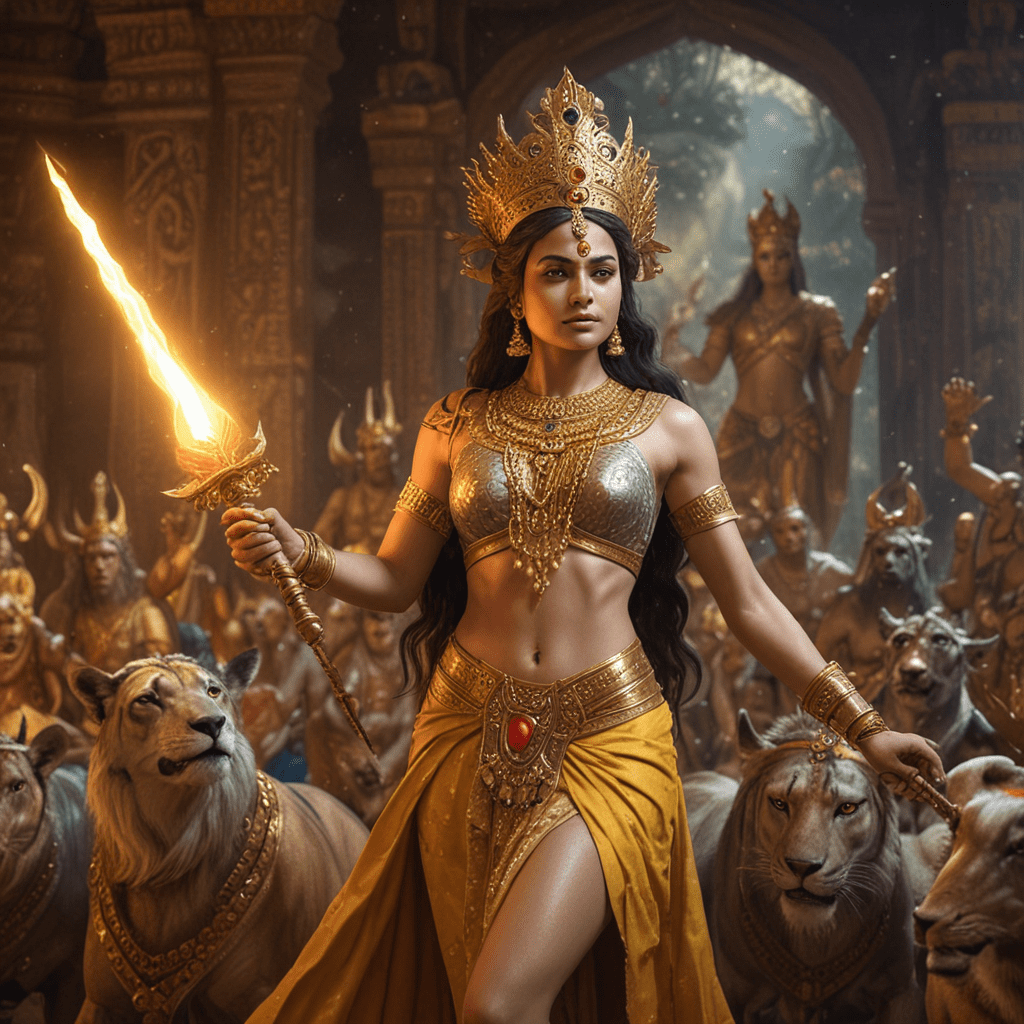The Story of Mandodari: The Queen of Lanka in Ramayana
I. Introduction: The Origin and Lineage of Mandodari
Mandodari, a figure of grace, strength, and unwavering loyalty, is the queen of Lanka in the epic Ramayana. She was born to the mighty Daitya King Mayasura and the beautiful Apsara Hema. From an early age, Mandodari displayed exceptional wisdom, compassion, and intelligence. She was well-versed in the Vedas, scriptures, and arts, making her a highly respected figure even before her marriage to Ravana.
II. Marriage

VI. Mandodari's Interaction with Rama: A Recognition of Virtue

Post the war, Mandodari met Rama, the victor. Overwhelmed with grief yet composed, she expressed her condolences for Sita's ordeal. Rama, moved by her nobility, acknowledged her virtue and resilience. He granted protection to Mandodari and her son, Vibhishana, who had remained loyal to Rama throughout the conflict.
VII. Life after the War: A Path of Devotion
In the aftermath of the war, Mandodari renounced worldly pursuits and embraced a life of devotion. She immersed herself in spiritual practices, seeking solace and redemption. Her pilgrimage to sacred sites and her dedication to meditation became a testament to her inner strength and spiritual evolution.
VIII. The Legacy of Mandodari: The Epitome of Grace and Strength
Mandodari's tale continues to inspire generations of women, symbolizing grace, strength, and unwavering loyalty. Her courage in facing adversity, her compassion for others, and her resilience in the face of loss make her an enduring role model. She represents the strength of feminine virtues and the enduring power of human spirit.
IX. Mandodari in Popular Culture: Depictions in Literature and Art
Mandodari's story has been extensively depicted in literature, art, and popular culture. From ancient Sanskrit texts to contemporary adaptations, her character has been portrayed in various forms. Artistic representations of Mandodari showcase her beauty, nobility, and the depth of her emotions. These depictions serve as a testament to her enduring legacy and cultural significance.
X. Conclusion: The Enduring Significance of Mandodari's Tale
The story of Mandodari, the Queen of Lanka, transcends time and continues to resonate with readers and audiences today. Her journey of love, loss, and spiritual awakening offers valuable insights into the human condition, the power of virtue, and the indomitable spirit that resides within us all. Mandodari's tale remains an enduring testament to the enduring power of storytelling and its ability to inspire and uplift.
FAQ
Who was Mandodari?
Mandodari was the queen of Lanka in the epic Ramayana, married to the demon king Ravana.
What was Mandodari's character like?
Mandodari was known for her wisdom, compassion, and unwavering loyalty. She was a noble and virtuous queen who advocated for the well-being of her people.
What is Mandodari's significance in the Ramayana?
Mandodari played a pivotal role in the Ramayana as a voice of reason and a symbol of virtue amidst the conflict between Rama and Ravana. Her interactions with both Rama and Ravana highlight the complexities of the epic and the enduring power of loyalty and compassion.
How is Mandodari portrayed in popular culture?
Mandodari's story has been depicted in various forms of literature, art, and popular culture, showcasing her beauty, nobility, and the depth of her emotions. These representations contribute to her enduring legacy and cultural significance.
What is the legacy of Mandodari?
Mandodari's tale continues to inspire generations, representing the strength of feminine virtues, the power of resilience, and the enduring significance of virtue and compassion.



